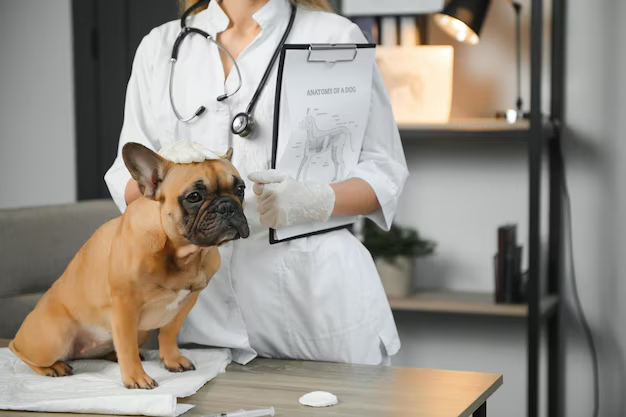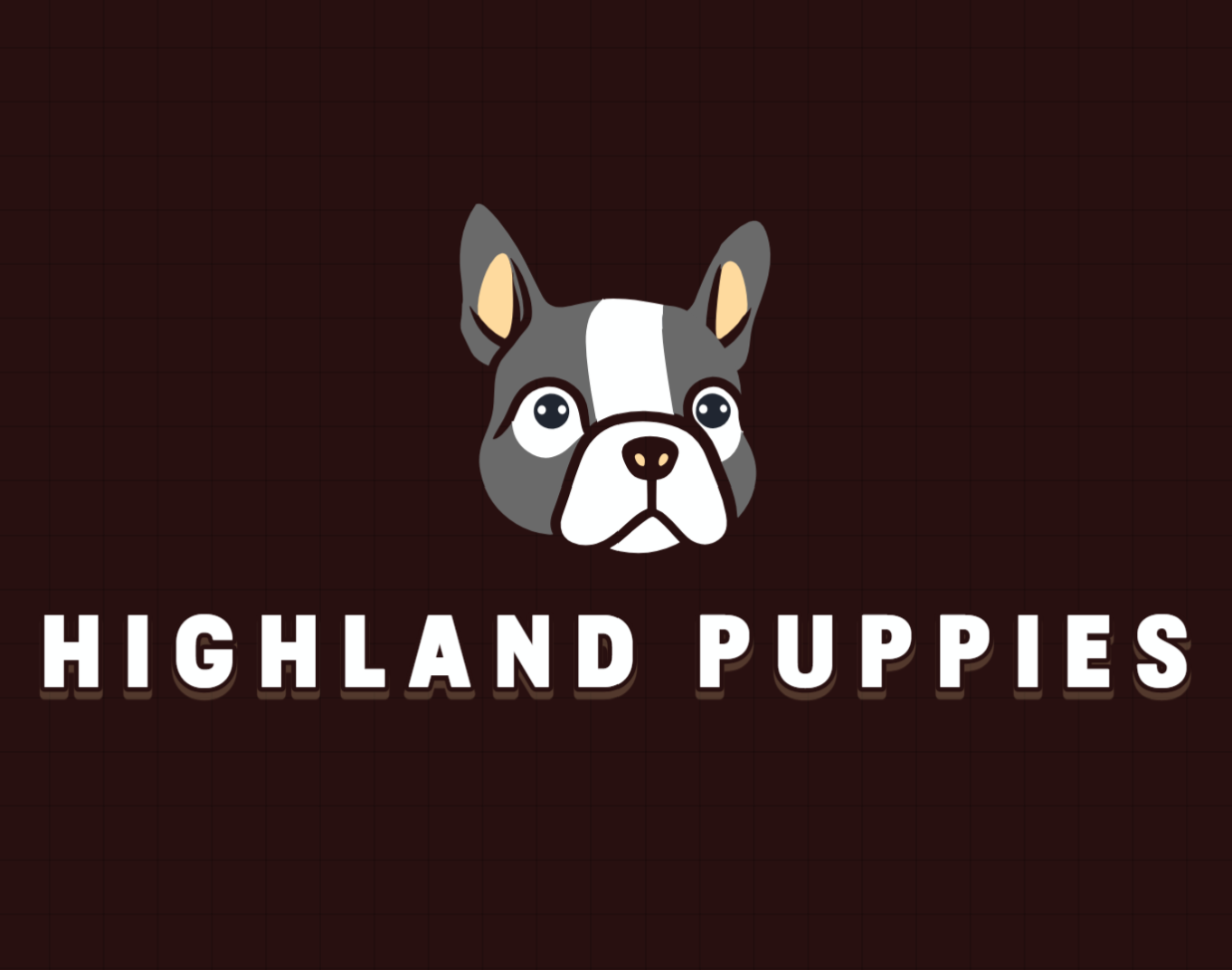
Bringing a French Bulldog puppy into your life is an exciting journey filled with love, laughter, and, of course, a lot of care. As a new puppy owner, it’s crucial to understand the importance of regular veterinary visits to ensure your French Bulldog grows up healthy and happy. French Bulldogs are a unique breed with their own set of health needs, and staying on top of veterinary check-ups is the best way to prevent common health issues and provide them with the best possible care.
Here’s a breakdown of the key veterinary visits your French Bulldog puppy will need in their first year and beyond.
1. The First Visit: Around 6-8 Weeks of Age
Your French Bulldog’s first veterinary visit typically happens when they are between 6 to 8 weeks old. This is an important milestone for your puppy’s health and well-being. During this visit, your vet will:
- Perform a thorough health check to ensure your puppy is healthy, with no obvious signs of illness or birth defects.
- Administer the first round of vaccinations, which typically include the DHPP vaccine (Distemper, Hepatitis, Parvovirus, and Parainfluenza) to protect your puppy from these common infectious diseases.
- Deworming: Your vet will deworm your puppy, as intestinal parasites are very common in young puppies.
- Flea and tick prevention: Depending on where you live, your vet may recommend starting flea and tick treatments.
- Heartworm prevention: Heartworm medication will likely be discussed to start as early as possible, depending on your region.
This visit is also a great time to ask the vet any questions you might have about your French Bulldog’s health and care.
All puppies from Highland Puppies come with multiple “first” visits including first round of vaccinations, deworming, and heartworm medications. We use a highly qualified veterinarian who performs all health care services from whelping until they go to their new homes.
2. Second Visit: Around 10-12 Weeks
At 10-12 weeks, your French Bulldog will have their second round of vaccinations. This visit is important for:
- Second round of vaccinations: This will include a booster for the DHPP vaccine and possibly the first rabies vaccine (depending on local regulations).
- Deworming: Puppies often need a second round of deworming at this stage to eliminate any lingering parasites.
- Physical examination: Your vet will check your puppy’s overall health, making sure they’re growing well and developing as expected. They’ll also examine your French Bulldog’s skin, eyes, ears, and teeth for any early signs of issues.
At this stage, many French Bulldog puppies are still learning about their world, so be sure to discuss any behavioral or developmental questions with your vet as well.
3. Third Visit: Around 14-16 Weeks
By 14 to 16 weeks, your French Bulldog will have a bit more experience under their collar! During this visit, your vet will:
- Administer the final round of puppy vaccinations, completing the DHPP series. Depending on your region, your vet may also administer the second rabies vaccine.
- Microchip implantation: If not done previously, this is an excellent time to have your puppy microchipped for permanent identification.
- Deworming: Another round of deworming may be necessary to ensure your puppy is free from parasites.
This visit is also a good time to discuss your puppy’s nutrition and diet. French Bulldogs are prone to obesity, so keeping an eye on their weight and feeding them a balanced, age-appropriate diet is key to their long-term health.
4. Spaying or Neutering: Around 6 Months
Spaying or neutering your French Bulldog is an important step in their life. Most vets recommend this procedure around 6 months of age, but your vet will discuss the best timing based on your puppy’s growth and health.
- Spaying involves removing the ovaries and uterus in females, while neutering involves removing the testicles in males.
- This procedure helps prevent unwanted litters and reduces the risk of certain health conditions, like mammary tumors or testicular cancer. It can also help curb certain behavioral issues.
It’s a good idea to talk to your vet about the pros and cons of spaying/neutering and the best time for your puppy.
5. Annual Check-Ups After 1 Year
Once your French Bulldog reaches adulthood, usually after their first year, they’ll transition to annual check-ups. These visits are essential to monitor your dog’s overall health and catch any issues early. During these visits, your vet will:
- Perform a thorough physical examination, checking for any signs of health problems, including common issues in French Bulldogs like brachycephalic airway syndrome (breathing difficulties due to their short snout), joint problems, and skin conditions.
- Review vaccinations: Your vet will determine which vaccines are needed based on your puppy’s lifestyle and local regulations.
- Parasite control: Ongoing flea, tick, and heartworm prevention is crucial year-round.
- Weight management: French Bulldogs are prone to obesity, so your vet will help you monitor their weight and adjust their diet as needed.
6. Regular Monitoring for Breed-Specific Issues
French Bulldogs have some unique health considerations due to their brachycephalic (short-snouted) nature. Here are a few things your vet will keep an eye on during regular visits:
- Brachycephalic Airway Syndrome: French Bulldogs are prone to breathing difficulties due to the structure of their faces. Your vet will check for any signs of respiratory distress and may suggest lifestyle changes or treatments if needed.
- Eye Health: French Bulldogs are prone to eye conditions like corneal ulcers and cherry eye. Regular eye exams can help detect any issues early.
- Joint Health: Hip dysplasia and patellar luxation (sliding kneecaps) are more common in French Bulldogs. Your vet will monitor their joints and recommend appropriate treatments or exercise regimens.
7. Dental Care
Dental health is often overlooked, but it’s crucial for your French Bulldog’s overall health. French Bulldogs are prone to dental issues, so it’s important to:
- Have their teeth checked during regular vet visits.
- Brush their teeth regularly (ask your vet for advice on how to do this safely).
- Consider professional cleanings as recommended by your vet.
Good dental hygiene can help prevent painful dental issues and promote overall well-being.
8. Ongoing Preventive Care
Throughout your French Bulldog’s life, ongoing preventive care is essential:
- Parasite prevention: Fleas, ticks, and heartworm are constant threats, so keep your dog on a year-round preventive regimen.
- Weight management: Maintain a healthy weight to reduce the risk of obesity-related issues, especially joint problems and breathing difficulties.
- Nutrition: Feed your French Bulldog a high-quality, breed-appropriate diet. Your vet can help recommend the best food based on their age, activity level, and health status.
Conclusion
Regular veterinary visits are crucial for your French Bulldog’s long-term health and happiness. From vaccinations and deworming to monitoring breed-specific health concerns, these check-ups are essential for ensuring that your puppy grows into a healthy, well-adjusted adult dog. By staying on top of veterinary care, you’ll be giving your French Bulldog the best possible start in life and ensuring that they enjoy many happy years by your side.
If you’re looking for a French Bulldog puppy and want to know more about their care needs, contact us today! We are committed to ensuring that every puppy we raise starts their journey with the best possible health and care.
Need help with your French Bulldog’s veterinary care?
If you’re a new French Bulldog puppy owner, be sure to consult with your vet regularly for personalized advice. Your vet can provide a health plan tailored to your puppy’s specific needs, ensuring a lifetime of health and happiness.
